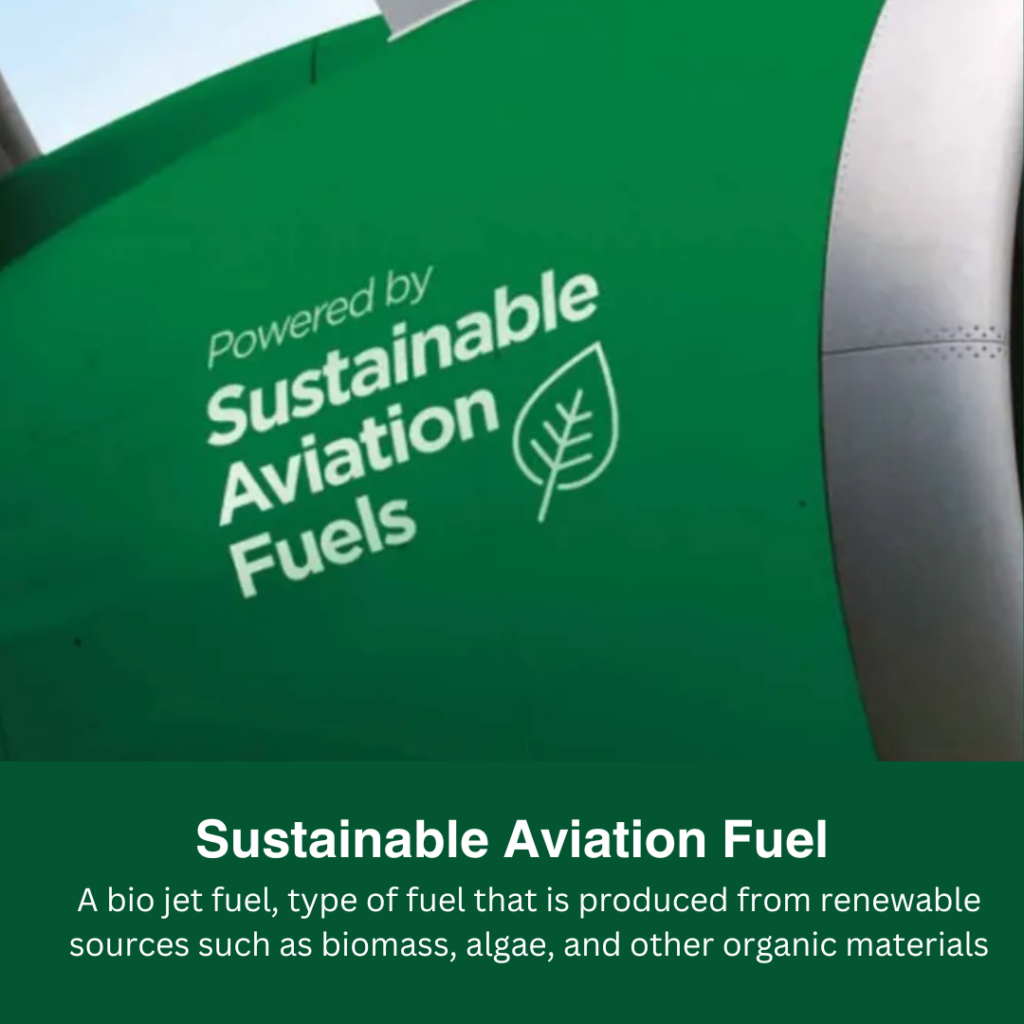In recent years, the aviation industry has been facing increasing pressure to reduce its environmental impact. One promising solution that has emerged is Sustainable Aviation Fuel (SAF). But what exactly is sustainable aviation fuel, and how does it help in creating a more environmentally friendly aviation sector? In this article we will take you through all the dynamics of getting a greener impact.

What is Sustainable Aviation Fuel?
Sustainable Aviation Fuel, also known as bio jet fuel, is a type of fuel that is produced from renewable sources such as biomass, algae, and other organic materials. Unlike traditional jet fuel, which is derived from fossil fuels, SAF offers a more sustainable and environmentally friendly alternative. One of the key benefits of sustainable aviation fuel is that it can significantly reduce greenhouse gas emissions compared to traditional jet fuel. By using SAF, airlines can lower their carbon footprint and contribute to the fight against climate change.
Which airlines use sustainable fuel?
Sustainable aviation fuel, like Neste MY SAF, is a fantastic solution that tackles emissions in the aviation industry with a smile. Neste MY SAF offers a safe, immediate, proven, and reliable way to reduce carbon footprints in the air. It’s heartwarming to know that leading commercial airlines, including Air France-KLM, Lufthansa, Delta Air Lines, and American Airlines, have already taken off with this eco-friendly initiative. The fact that even cargo carriers such as DHL Group, Amazon Prime Air, and UPS are embracing this green fuel is a clear sign that we are all on board for a more sustainable aviation fuel future in aviation. With Neste MY SAF spreading its wings, the sky is not the limit when it comes to reducing emissions.
Sustainable options make the best suited environment that enables smooth working as well as greenery. Here is a list of all airlines that use sustainable aviation fuel:
- Alaska Airlines
- Delta Air Lines
- American Airlines
- KLM
- Jetblue
- United Airlines
- Easyjet
- Cathay Pacific
- Ryanair
- Flybe
- British Airways
- Loganair
- Qantas
- Hi Fly
- Virgin Atlantic
- Air Canada
- China Airlines
- SAS Scandinavian Airlines
- Cape Air
- Ecojet (UK)
How is Sustainable Aviation Fuel Produced?
There are several different pathways for producing sustainable aviation fuel, each with its own unique advantages. Some common methods include:
- Hydroprocessing: This process involves upgrading vegetable oils or animal fats into a fuel that mimics traditional jet fuel.
- Fischer-Tropsch Synthesis: This method converts carbon-containing gases, such as biomass or waste, into liquid hydrocarbons that can be used as aviation fuel.
- Alcohol-to-Jet: In this process, alcohols like ethanol are converted into a synthetic paraffinic kerosene that can be used as jet fuel.
Benefits of Sustainable Aviation Fuel
Using sustainable aviation fuel offers a wide range of benefits for both the environment and the aviation industry. Some of the key advantages include:
- Reduced Greenhouse Gas Emissions: SAF can help airlines significantly lower their carbon footprint and meet sustainability goals.
- Diversification of Energy Sources: By using renewable feedstocks, SAF reduces the industry’s reliance on fossil fuels.
- Enhanced Energy Security: SAF production can help create a more secure and stable energy supply for the aviation sector.
Future of Sustainable Aviation Fuel
As the aviation industry continues to focus on sustainability and reducing its environmental impact, the demand for sustainable aviation fuel is expected to grow rapidly. By the end of 2024, the global sustainable aviation fuel market is projected to reach new heights, with more airlines and aircraft manufacturers investing in greener fuel options.
In conclusion, Sustainable Aviation Fuel represents a significant opportunity for the aviation industry to reduce its carbon footprint and transition towards a more sustainable future. With ongoing advancements in technology and increased interest in renewable energy sources, SAF is poised to play a crucial role in creating greener skies for generations to come.
